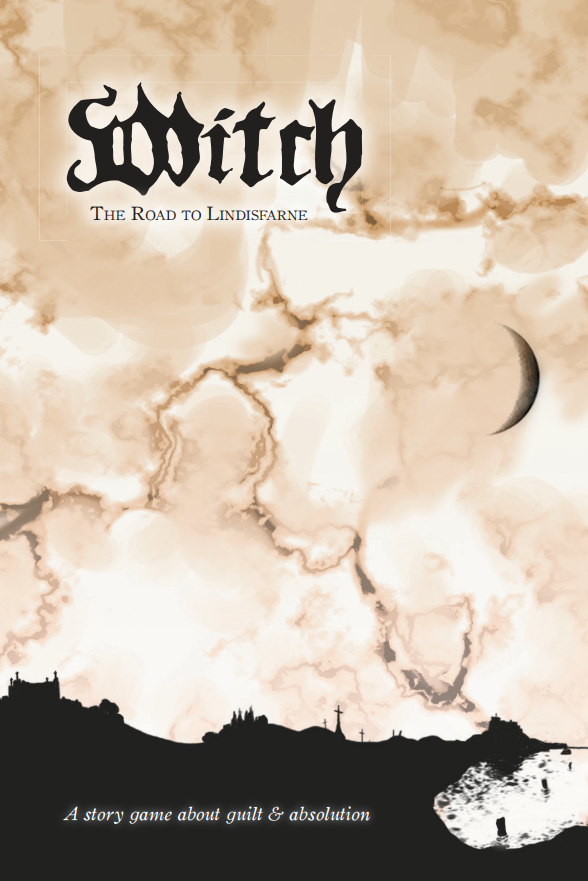I’m on a study project to improve my understanding of roleplaying games. To this end, I already have two reading projects, A Game Per Year and An Adventure Per Year. This is the third, with the goal of reading or playing 52 games made in the last few years. Originally I considered making this “A New RPG Per Week” and that’s where the number 52 comes from, even though a weekly schedule is probably not within my abilities.

Witch: The Road to Lindisfarne is a freeform scenario originally published in 2012. I read a version from 2017. It’s set in Britain in 1350 in the time of a plague that sweeps across the land. The church in London has determined that the cause of the plague is the Devil and its agent, the witch. A woman has been imprisoned and made to confess.
The scenario consists of a journey from London to the island of Lindisfarne where the witch will be killed in a ritual to cleanse the land of the plague.
The scenario is economical in its presentation, being just a leaflet of 30 pages. There’s a little game board which you can use to track the progression of the characters on the road to Lindisfarne and print-ready tokens the player of the witch uses to choose in advance whether she’s really guilty or not. The secret is revealed at the end of the game, after the players and their characters have decided whether they’ll go through with the execution or not.
The main substance of the scenario consists of a series of acts with different themes during which players will frame and present scenes from along the road. There are a few constraints: The witch can’t escape and they must continue along the road. Otherwise, all sorts of things can happen.
From a design perspective, this is an interesting game in the sense that so much of the core content of when it’s played is in the hands of the players, depending on what they improvise. The game as a text sets some things in stone but is quite open about the action during the majority of playtime.
In a sense, I’ve always found that this type of freeform design is quite close to my own preferred style of running tabletop campaigns. The only essential difference is duration: Instead of a one-night game like this one, a campaign can last for dozens of sessions.